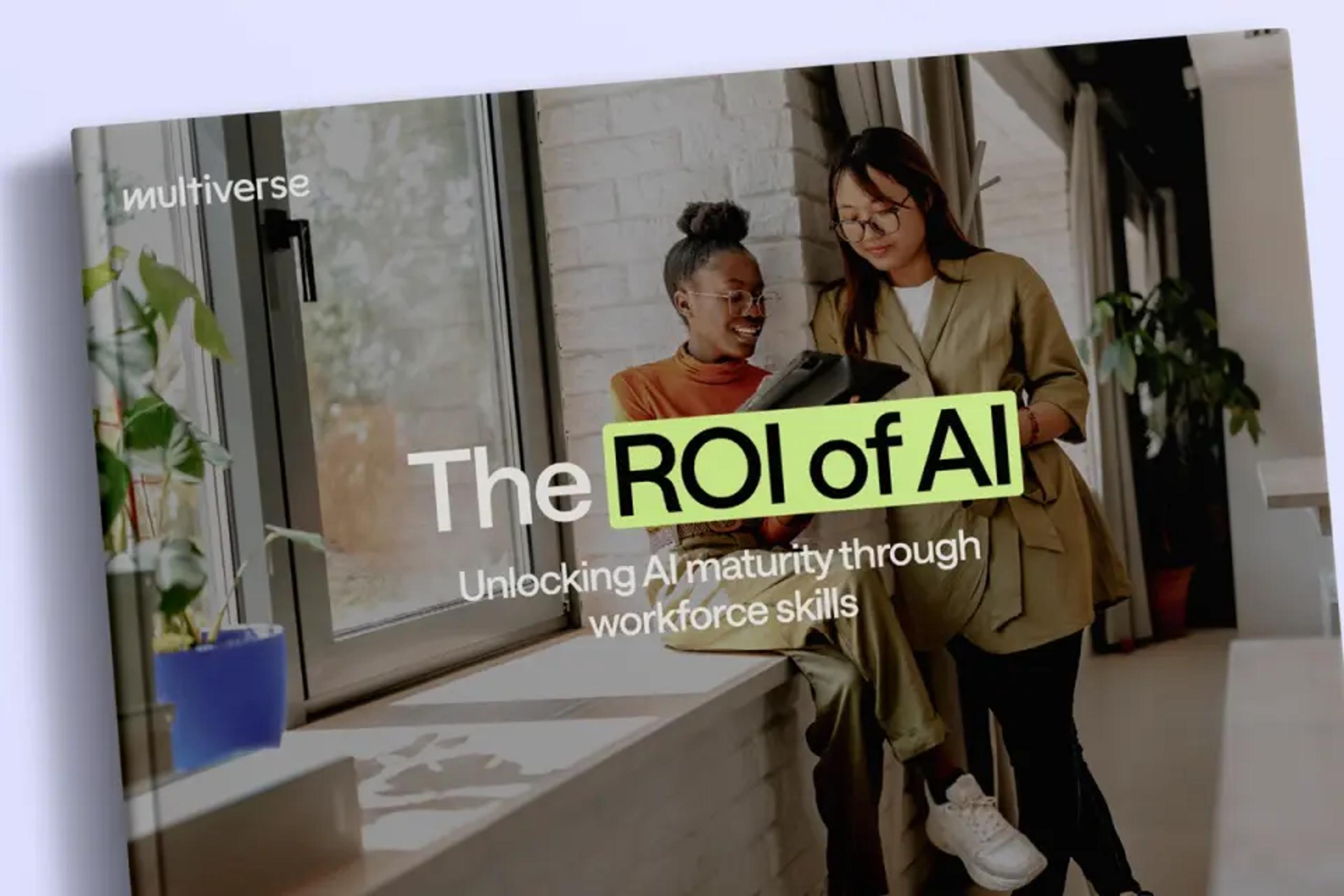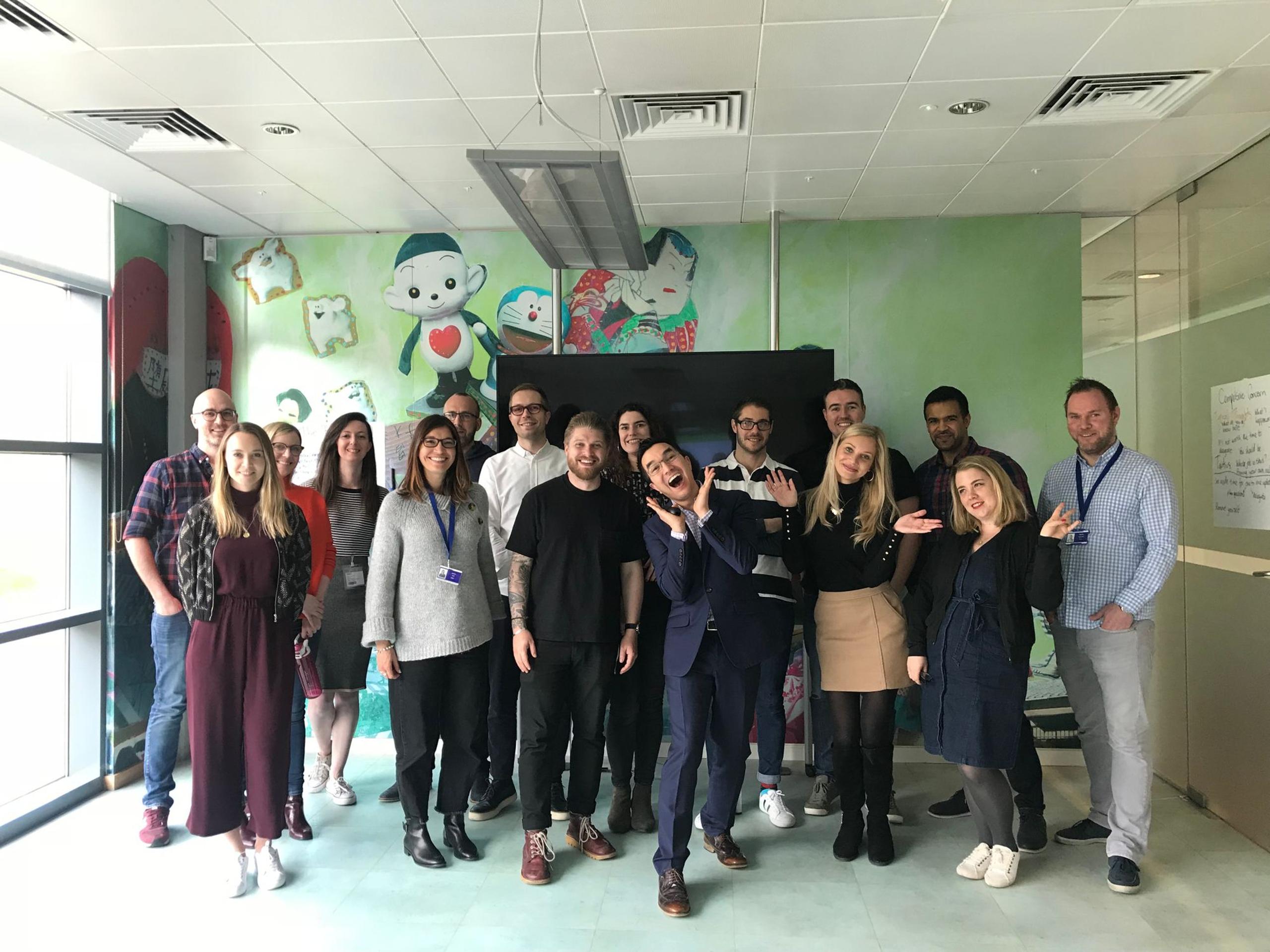These days, you can’t avoid hearing about the so-called ‘fourth industrial revolution'.
New technologies like AI and automation are drastically changing the workplace. By 2022, the World Economic Forum predicts AI will help create a staggering 133 million(opens new window) jobs—but there's a catch. In order to keep up with these changes, 50% of the current workforce will need to be reskilled.
Before you start reaching for your P45, you should know that despite the hype, your job isn’t about to be replaced by a roboid. The real question is this:
How are you and your teams preparing for change?
According to analytics from Bullhorn’s Global Recruitment Insights & Data(opens new window) (GRID), 77% of UK recruiters believe reskilling is the most effective way to counter the growing skills shortage. Yet, a whopping 73.1% of UK workers are disappointed with their training opportunities(opens new window).
Clearly, the current options aren't cutting it.
Let's go beyond the headlines to uncover the real benefits of investing in development opportunities for your teams.
Reskilling your people: What are the benefits?
Employees that want to come to work
The annual Job Exodus Survey for 2018(opens new window) found that 47% of the UK workforce said they'll be looking for a new job in the near future.
And the top reason?
Employees felt they could find more satisfaction somewhere else.
Research shows that employees who have access to meaningful training opportunities are more satisfied with their jobs, more motivated and more engaged—increasing the overall morale of the workplace in an extremely positive way.
In fact, according to the same survey, 93% of employees reported feeling more valued when offered development opportunities.
Way more productivity
Behavioural psychology has revealed a key correlation between how we feel and how we act.
And according to research, happier people work harder. For instance, economists at the University of Warwick found that feeling ‘good’ within oneself, led to an impressive 12% spike in productivity(opens new window). In contrast, workers who reported feeling unhappy were 10% less productive.
Investing in your people is the best way to show them they're valued and that they deserve to feel good about the work they do.
More loyalty (and less turnover)
Turnover reduction is the golden egg of business.
After all, recruitment takes time and money. But the biggest mistake you can make is assuming loyalty from your employees without giving them something back. For instance, 90.5% of employees(opens new window) would be less likely to leave a company if it offered training.
And this is especially important when it comes to millennials (who by the way, make up a quarter of the world's population). For this cohort, a lack of career progression is a deal breaker. Take for example, the 2017 Gallup report which found that millennials rank learning and growth opportunities above all other considerations(opens new window) when assessing a job.
Cool. But how do you take advantage of these benefits?
The biggest counter-argument is that training costs time and money.
And sometimes time is the bigger bottleneck.
We've all been there. You need something done, but you're busy. Rather than taking the time to explainthe task to someone else (so they can do it next time), you DIY it so you can move swiftly on to the next item on your to-do list.
The thing that makes learning and development so important is the fact that it's a compound time activity.
The more you invest in training your employees on new skills, the more opportunities you'll have to focus on the high-level strategic projects you never seem to have time for.
And one way to get there is to enrol your existing employees in an apprenticeship scheme.
"Our employees already have degrees. And aren’t they too 'old' for an apprenticeship?"
Not at all. Today's apprenticeships have a whole new look—and they aren’t just for school leavers or graduates.
Employees (even those with a BA or BSc) can also benefit.
So, if you’ve spotted some skills gaps now or coming up in the future, but you’ve already hit your headcount, why not upskill your existing team via an apprenticeship?
Laura Tomsett is the Recruitment Advisor at Christie’s. And sure, she has a degree. But when she took on the role, she had no experience in the type of recruitment projects an organisation like Christie's would require.
“A significant portion of my role involves me delivering recruitment projects; having had no formal training in this area, I felt it would be invaluable to my development to embark on a project management qualification," says Laura.
"I researched for a long time around different qualifications and providers. I then uncovered that WhiteHat intended to deliver a Project Management Apprenticeship. Having already worked with WhiteHat on our Apprenticeship Programme and knowing the thought and care they put into delivering their apprenticeships, I spoke to my line manager about signing up."
And the rest, as they say, is history.
How does it work?
Apprenticeship schemes can include everything from data management to project management.
Employees benefit from a range of training resources like attending 1:1 coaching sessions, e-classroom lessons, and setting up mini experiments and insight days.
The apprenticeship usually requires 20% additional job training (on top of full-time working hours). But this is made possible by taking time during the working day to do things like shadow a colleague or meet up with a manager to discuss progress.
"The most valuable thing from my apprenticeship has been to take the learnings from the course and apply them to my day-to-day role, ensuring that I work more effectively and efficiently. It has also given me the opportunity to self-assess my own strengths and work on areas for improvement, giving me more confidence in the workplace to make decisions and engage in new activities," explains Laura.
If you want to make sure you’re ready for the next decade, there's no time like the present. Review your current training and development strategy and ask yourself if it's offering employees what they truly need in order to take your business forward.




